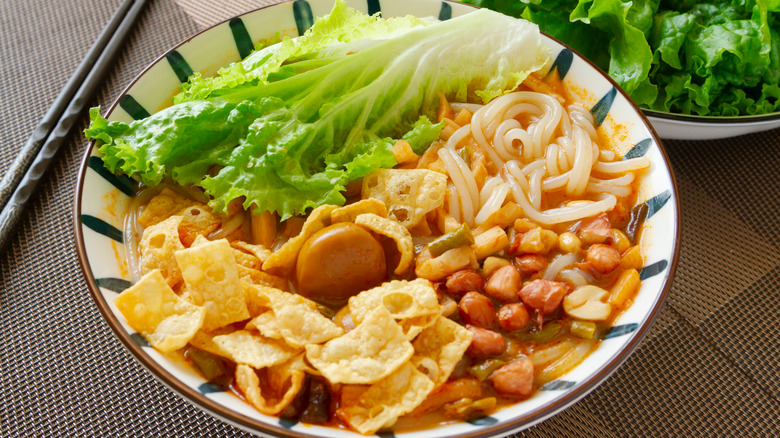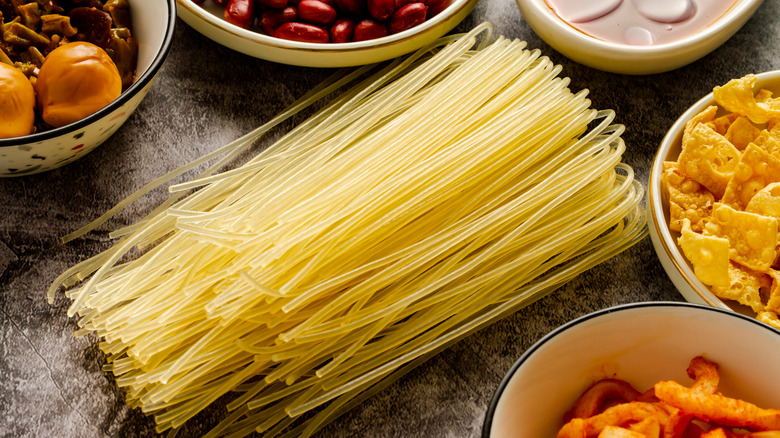What Makes China's Luosifen Soup Unique
For a dish that some people think "should be classed as a bioweapon," luosifen soup is surprisingly popular and in demand. A specialty of Liuzhou, a city in the southwestern Guangxi region of China, luosifen soup, or river snail rice noodle soup, was first introduced in the 1970s by street vendors who started cooking rice noodles and river snails together. The humble street food wasn't really known outside the region until it was featured on the popular television show, "A Bite of China," in 2012, notes Goldthread. In 2014, the first instant luosifen factory was established. Luosifen's popularity really took off during COVID when a manager at a luosifen factory live-streamed how the noodles were made and took orders live, selling more than 10,000 packets in just two hours.
There are now more than 8,000 restaurants in China that specialize in the trendy dish, and a luosifen industry vocational school has even opened in Liuzhou, writes the South China Morning Post, which also notes that luosifen packets were the most popular food item on the e-commerce platform Taobao in 2019, with sales of more than 28 million packet. Luosifen is also becoming popular overseas, with exports to more than 100 countries or regions, according to Chinese e-commerce site Alibaba, reports CNN.
Luosifen has a unique smell and taste
Luosifen is made by boiling river snails and either pork or beef bones with a blend of more than a dozen aromatics, herbs, and spices (that include bay leaf, black cardamom, cassia bark, cloves, dried tangerine peels, fennel seeds, licorice root, sand ginger, and white pepper) for eight hours, until the snail meat has disintegrated and the soup has taken on a "fishy smell," though the unique pungent odor actually comes from the pickled bamboo shoots that are served with luosifen (along with peanuts, green beans and vegetables, shredded black fungus, and bean curd sheets), explains the South China Morning Post. The pickled bamboo shoots are a specialty of Liuzhou and are fermented for a half month, Chef Zhou Wen explained to the South China Morning Post, noting that, "Without the bamboo shoots, the noodles will lose their soul."
The taste of luosifen has been described as "sour, spicy, salty, hot, and stinky" by CGTN. According to Ni Diaoyang, the head of the Liuzhou Luosifen Association and a director of the Luosifen Museum, "It only takes three bowls to get you hooked" (via CNN). With pre-packaged luosifen now available in so many countries, plenty of people can try it for themselves, if they can get past the unique odor.

